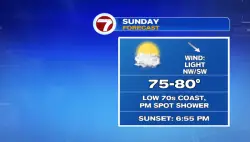A Newspaper Called His Gaza Photos ‘Hamas Propaganda.’ He's Fighting Back.
Anas Zayed Fteiha, a Palestinian photojournalist in the Gaza Strip, filed a legal claim seeking an injunction against global publishing giant Axel Springer, which he accuses of violating his constitutional rights by falsely portraying him as a Hamas propagandist in Germany’s largest tabloid, BILD. The filing against a European news organization is a first-of-its-kind legal strategy for journalist working in Palestine. “I want to prove the truth cannot be erased by false allegations,” Fteiha told The Intercept. Fteiha’s legal claim, submitted in the Frankfurt am Main Regional Court, stems from a BILD article published on August 5 under the headline: “This Gaza photographer stages Hamas propaganda.” The BILD piece singled out Fteiha, alleging he fabricated images of starving Palestinians to push a Hamas narrative. To underscore this charge, BILD published a picture showing Fteiha kneeling to photograph people in Gaza holding empty pots in front of a metal barrier. BILD framed the scene as an attempt to exaggerate the levels of hunger in Gaza. Later in August, a United Nations-backed body declared a famine in Gaza. The article claims Fteiha staged the photo and describes him as a “journalist” three times, always in quotation marks. “In fact it was a genuine moment of human suffering,” Fteiha told The Intercept. “It seems that [Axel Springer] is promoting a narrative portraying journalists in Gaza as accomplices of Hamas.” Fteiha was at the food distribution site as a freelancer for the Turkish news agency Anadolu, and published a range of photographs online from that day. To Fteiha, BILD’s reporting is part of a campaign to discredit Palestinian journalists, he told The Intercept. “Falsely accusing me of staging propaganda exposes me to threats and undermines the supposed protections afforded to journalists,” he said. “It means I could be targeted simply because false reports about me were published.” Fteiha is seeking an injunction proceeding — an emergency procedure aimed at reaching a quicker resolution than a typical lawsuit. If granted by the court, the injunction would require Axel Springer to correct the statements in the article that he alleges are false and would oblige the publisher to cover the costs of the legal proceedings brought by Fteiha. Axel Springer has not responded to questions from The Intercept. A BILD group communications spokesperson said that the company has not yet received Fteiha‘s filing and therefore cannot comment on it. Fteiha’s legal action could test whether German courts are willing to hold one of the country’s most powerful media outlets accountable for defamatory coverage that critics say has fueled the dehumanization of Palestinians. Just days after Fteiha was singled out in the August article, BILD ran the image of Al Jazeera Gaza correspondent Anas al-Sharif – who was killed hours earlier in Gaza – with the headline: “Terrorist disguised as journalist killed in Gaza.” The phrasing was later revised to: “Killed journalist allegedly was a terrorist.” That article, too, is mentioned in the filing: “It seems that [Axel Springer] is promoting a narrative portraying journalists in Gaza as accomplices of Hamas.” Related Our Reporter Got Into Gaza. He Witnessed a Famine of Israel’s Making. Fteiha’s claim, filed by German press lawyer Ingrid Yeboah with support from the European Legal Support Center (ELSC), rejects BILD’s assertions that Fteiha staged or manipulated his images and that he masquerades as a journalist. It argues that the BILD reporting includes “gravely defamatory and life-threatening statements” that constitute a violation of Fteiha’s “general right of personality” under German constitutional law, which protects individuals against defamation. BILD never sought Fteiha’s comment before publication, his filing alleges, despite claiming otherwise in the article. BILD’s communications director, Christian Senft told The Intercept: “As a matter of principle, we do not comment on our sources or editorial processes.” The article, the filing says, insinuates that Fteiha deliberately withheld photos showing men at the food distribution site in order to distort reality and bolster a “constructed narrative” serving Hamas. Yet before the BILD article was published, Fteiha had already posted several images from the day in question — depicting men as well as women and children waiting for food — as a report by Der Spiegel showed. The filing argues that BILD deliberately withheld this fact in order to maintain its narrative that a Gaza-based journalist was spreading Hamas propaganda. BILD further attempted to link Fteiha to Hamas, he alleges, by citing an Instagram image he co-published that reads “Free Palestine” – describing this as Fteiha’s ‘mission’ – and by framing his freelance work for Anadolu as “subordinate to Turkish President and Israel-hater Recep Tayyip Erdogan.” Both examples, the filing argues, were wrongfully presented as evidence of political extremism intended to delegitimize Fteiha. Related Airdropped Aid Is Crushing Starving People in Gaza Before the BILD article came out, the liberal news outlet Süddeutsche Zeitung, or SZ, published a piece titled, “How real are the images from Gaza?” BILD refered to the article as it questioned the authenticity of photos taken by journalists in Gaza. The SZ article consulted experts and published the same image of Fteiha photographing civilians behind a metal barrier. Although SZ did not mention Fteiha by name, the article – together with BILD’s – was quickly amplified on social media by Israel’s foreign ministry. Pointing to the German coverage as proof that Hamas manipulates global opinion, the ministry branded Fteiha an “Israel- and Jew-hater” serving Hamas. The Gaza Humanitarian Foundation (GHF) quickly joined in, followed by major Israeli outlets such as The Times of Israel, Ynet, and the Jerusalem Post. Israeli President Isaac Herzog echoed the fabrication narrative as well, holding up the photo of Fteiha at a conference in Estonia and citing German press reports. “It was all staged,” Herzog declared. Christopher Resch, a spokesperson for Reporters Without Borders Germany, said that German media appeared eager to amplify Israel’s campaign to delegitimize a Palestinian journalist. “Newsrooms should always – especially when it comes to war reporting – apply the highest professional and ethical standards and never report carelessly,” Resch said. “If media reports can be used to legitimise criminal decisions by the Israeli military, one can assume they will be used.” Fteiha’s legal action followed an application for a cease-and-desist order that Yeboah filed on September 1 demanding that BILD retract the contested statements and cover Fteiha’s legal costs, while reserving the right to seek further damages. Axel Springer’s lawyer Felix Seidel rejected that request in an official letter on September 4, arguing that “after reviewing the facts and legal situation, [we] inform you that we do not intend to comply with the demands of your client.” According to the filing, the BILD article violated multiple standards of German press law. The filing alleges the story contained false claims, including that Fteiha had not distributed the images in question and was merely posing as a journalist. It further argues that under German law, suspicion reporting is only permissible if backed by careful research, a minimum factual basis, and a clear indication that the allegations are unproven. It notes that the subject must be given the chance to comment before publication – all requirements that, the filing says, BILD ignored. Fteiha continues to work in Gaza despite the Israeli military’s heavy bombing and imminent ground invasion of in Gaza City. “I believe my role as a journalist is to bear witness to what is happening and to convey the truth to the world — no matter the cost,” he told The Intercept. The post A Newspaper Called His Gaza Photos ‘Hamas Propaganda.’ He’s Fighting Back. appeared first on The Intercept.

